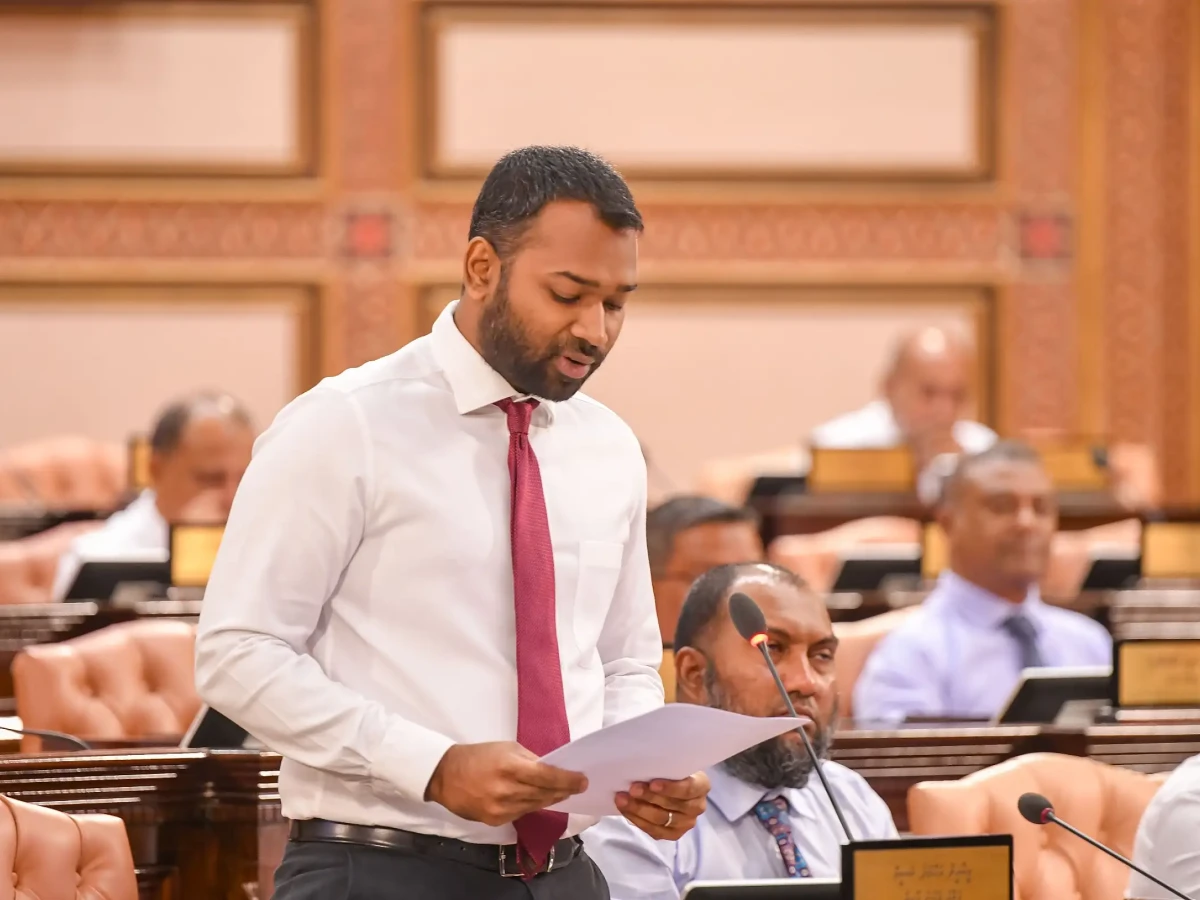
Parliament resolution urges govt to prepare for economic impact of Middle East conflict
The resolution calls on the government to ensure continued access to key imports including fuel, gas, medicines, baby food, and other essentials.
Top Stories
-
MP Mauroof released from custody, receiving hospital treatment
-
House floor sinks in Malé during nearby construction work
-
PNF to hold special rally at Artificial Beach on Wednesday
-
MDP MP says Mauroof arrest may breach parliamentary privileges
-
Complaint filed with JSC over judge’s remarks on defence lawyer
A resolution has been submitted to the Maldives Parliament calling on the government to take immediate measures to prepare for possible economic disruptions resulting from the escalating conflict in the Middle East following Israeli airstrikes on Iran.
The resolution was submitted by Meekail Ahmed Naseem, a Member of Parliament representing the Maldivian Democratic Party (MDP). It highlights the need for the Parliament to express its position on the steps the government should take in anticipation of the potential challenges posed by the regional conflict.
According to the resolution, the conflict could expand to involve more countries following Iran’s response to Israel’s 13 April airstrike, which targeted Iranian territory and reportedly killed senior members of Iran’s Islamic Revolutionary Guard Corps. Iran retaliated by launching over 200 ballistic missiles at Israel, after which the United States reportedly intervened with military action. China, Russia, and Yemen have also issued warnings that they may enter the conflict if the United States continues to engage militarily with Iran.
The resolution calls on the government to ensure continued access to key imports including fuel, gas, medicines, baby food, and other essentials. It warns that supply chain disruptions, particularly in the event of a prolonged conflict, could have direct consequences on the Maldivian economy.
The document further notes the Maldives' dependence on imports for oil, food, and medicine, and states that any interruption could lead to shortages of basic goods. It also raises concern over the potential impact on the tourism industry, which is identified as the country's largest economic sector and the main source of foreign currency.
The resolution points out that many of the airlines bringing tourists to the Maldives are based in the Middle East. Any restriction or disruption in air travel due to the conflict could therefore impact tourist arrivals and, by extension, government revenue.
The resolution notes that the recent geopolitical developments have already influenced global markets, with oil prices rising since the start of the latest hostilities.
It concludes by urging the government to develop contingency plans to manage the risks associated with the unfolding situation and to protect the Maldives’ economic stability and supply of essential goods.




